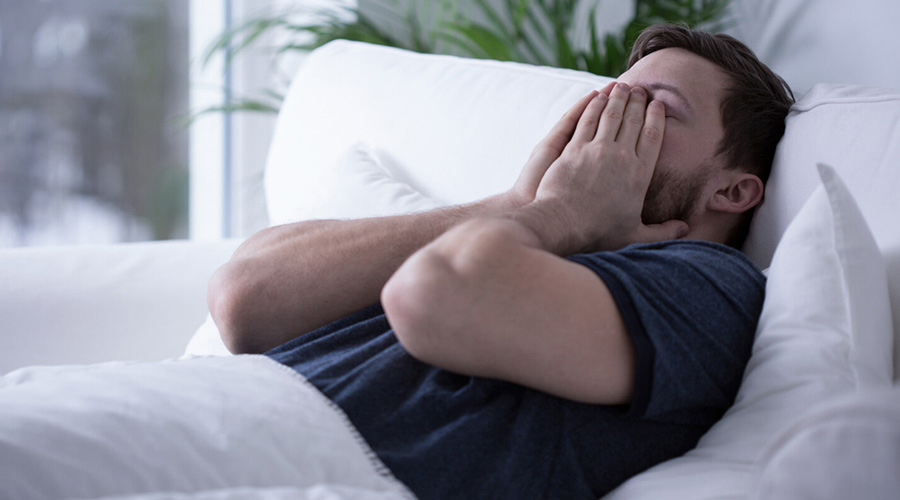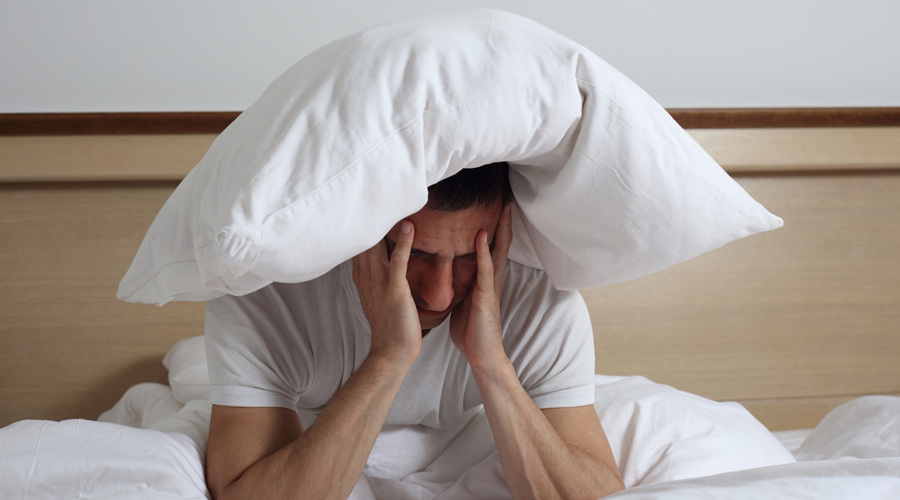You’ve probably heard the saying “you can’t perform at your best if you don’t get a good night’s sleep.” This is definitely true! A lack of sleep can lead to decreased productivity, poor decision-making, and even health problems. In this blog post, we will discuss tips for getting a better slumber. We’ll cover everything from how much sleep you need, to how to create a bedtime routine that works for you. So whether you’re struggling with insomnia or just want to get more out of your snooze time, buy real turinabol read on
How can I get a better night’s sleep?

Sleeping well has a direct impact on your mental and physical health. Fall short, and it may cause significant damage to your daytime energy, productivity, emotional equilibrium, and even weight. However, many of us struggle to obtain the rest we require each night because we toss and turn throughout the night.
When you’re wide awake at 3 a.m., getting a good night’s sleep might seem like an unattainable goal, but you have far more control over the quality of your slumber than you may imagine. Just as how you feel during the day is frequently determined by your nighttime rest, so can the treatment for sleep issues be found in your regular routine.
Unhealthy daytime habits and lifestyle choices can result in tossing and turning at night, which can have a negative impact on your mood, brain, and heart health, as well as your immune system, creativity, energy levels, and weight. However, by using the suggestions below, you may sleep better at night while also improving how you think and feel during the day.
Control your exposure to light

Melatonin is a hormone that is regulated by light exposure and helps to regulate your sleep-wake cycle. When it’s dark, your brain produces more melatonin, making you sleepy; but when it’s light, your brain secretes less melatonin, making you more awake. Many elements of modern life can disrupt your body’s production of melatonin and shift your circadian rhythm. Here are some tips for controlling how much light enters your eyes:
At day:
- In the morning, expose yourself to as much direct sunlight as possible. The sooner you rise, the better. Have your coffee outside or eat breakfast by a sunny window for example. The light on your face will help you get up in the morning.
- Spend more time outside during the day. Take your work breaks outdoors in the sun, go for a walk with your dog during the day rather than at night, or exercise outside instead of indoors.
- Let as much natural light into your home or place of business as feasible. During the day, keep the curtains and blinds open, and try to position your workstation closer to the window.
- Place the light therapy box in front of you and use it to simulate sunshine as needed. This can be beneficial on short winter days.
At night:
- Nothing should be on your computer or TV within 1-2 hours before bedtime. The blue light produced by your phone, tablet, computer, or television is especially disruptive. Use devices with smaller displays, decrease the brightness or utilize light-altering software like f.lux to minimize the impact.
- If you’re a parent, try to avoid late-night television. Not only is light from a TV harmful to melatonin production, but many shows are stressful rather than relaxing. Instead, listen to music or audiobooks.
- Do not read with backlit devices. Tablets with built-in light are more distracting than e-readers that don’t have their own lighting source.
- When it’s time to sleep, make sure the room is as dark as possible. To block light from the windows, use heavy drapes or blinds, or try a sleep mask. Consider covering up any electronic devices that illuminate the area.
- Keep the lights off if you wake up in the middle of the night. If you’re searching for a way to see where you’re going, consider putting a little light in your hallway or bathroom. This will let you fall back asleep more quickly.
Improve your sleep environment

A relaxing bedtime routine sends a clear message to your brain that it’s time to relax and let go of the day’s worries. Even minor adjustments to your surroundings may make a significant impact on your sleep quality.
- Keep your room as cool as possible. Most people sleep best in a 62° F to 66° F (16° C to 19° C) room that is well ventilated, according to studies. A bedroom that is too hot or cold may prevent you from getting a restful night’s sleep.
- Reserve your bed for sleeping and lovemaking. Your brain will link the bedroom with only sleep if you do not work, watch TV, or use a smartphone, tablet, or computer in bed.
- Make certain your bed is suitable for you. Your bedding should allow you enough space to stretch and turn without being snagged. If you have a painful back or a stiff neck on a regular basis, test various levels of mattress firmness, foam toppings, and cushions that offer more or less support.
- Reduce noise as much as possible. If you can’t avoid or eliminate noise from neighbors, traffic, or other family members, consider using a fan or sound machine to cover it up. Earplugs might also be beneficial.
Optimizing your sleep schedule

Taking command of your daily sleep routine is a significant step toward better sleep. To begin utilizing your schedule for your advantage, use the following four methods:
- Set a Specific Wake-Up Time: It’s difficult for your body to get used to a healthy sleep schedule if you’re waking up at odd times. Pick a wake-up time and stick with it, even on weekends or other days when you would otherwise be inclined to sleep in.
- Time for Sleep: If you want to make sure you’re getting the right amount of sleep each night, include it in your schedule. Work backwards and come up with a bedtime goal based on your fixed wake-up time. Allow yourself more time before bed to prepare for sleep whenever feasible.
- It’s essential to be cautious about naps if you want to sleep well at night. If you take a nap for too long or too late in the day, it can screw up your sleep schedule and make it more difficult to fall asleep when you need to. The ideal time to snooze is around noon, just after lunch, and the ideal nap duration is 20 minutes.
- Adjust Your Schedule Gradually: It’s best to gradually adjust your sleep schedule and make changes in small quantities with a maximum difference of 1-2 hours per night when you need to shift it. This helps your body adjust to the modifications so that maintaining your new routine is more feasible.
Exercise during the day

Regular exercise helps people fall asleep faster, sleep better at night, and feel less sleepy during the day. Regular exercise also improves the symptoms of insomnia and sleep apnea, as well as the amount of time you spend in deep, restorative stages of sleep.
- Exercising increases your metabolism, heats up your body, and activates hormones like cortisol. This isn’t an issue if you exercise in the morning or afternoon, but it can cause disruptions to sleep if you exercise too close to bedtime.
- Try to complete moderate-to-vigorous exercises for at least three hours before going to bed. If you’re still having problems sleeping, shift your activities even earlier. Yoga and simple stretching in the evening can assist you fall asleep.
Keep in sync with your body’s natural sleep-wake cycle

It’s critical to get in sync with your body’s natural sleep-wake cycle, also known as the circadian rhythm, for a good night’s sleep. Even if you only change your sleep schedule by an hour or two, you’ll feel considerably more rejuvenated and active than if you slept the same number of hours at different times if you maintain a regular sleep-wake routine.
- Set an alarm clock for your wake-up time and try to go to sleep and get up at the same time every day. This assists in establishing your body’s internal clock and improving the quality of your sleep. Make a plan for going to bed when you’re tired; don’t toss and turn as a result of this. If you get enough sleep, you should wake up naturally without using an alarm clock. You may require an earlier bedtime if you need an alarm clock.
- Avoid sleeping in on weekends, even if you have nothing else to do. The more your weekend/weekday sleep schedules vary, the greater your jetlag-like symptoms will be. If you need to make up for a late-night, take a daytime nap rather than sleeping in. This allows you to pay off your sleep debt without affecting your normal sleep-wake rhythm.
- Take advantage of your power down. While napping is a wonderful method to make up for missed sleep, if you have difficulty falling asleep or staying asleep at night, napping might make things worse. Naps should be limited to 15 to 20 minutes in the early afternoon.
- Start your day off on the right foot by eating a nutritious breakfast. Eating a balanced breakfast, among other things, can help synchronize your biological clock by signaling to your body that it’s time to wake up and go. On the other hand, skipping breakfast might delay your blood sugar rhythms, decrease your energy levels, and raise stress levels, all of which may influence sleep.
- Fight the slouching effect. If you’re yawning before bedtime, get off the sofa and do anything moderately interesting, such as washing the dishes, phoning a friend, or getting your clothes ready for tomorrow. You may be more likely to wake up late at night if you give in to drowsiness.
Wind down and clear your head

Do you find that you’re unable to fall asleep, or that you’re waking up night after night? Residual stress, worry, and rage from your days may make it difficult to sleep. Taking steps to control your general stress levels and learning how to stop worrying
Sleep deprivation can have a variety of causes, including work or school stress. Sleep deprivation may also be caused by unhealthy sleeping habits. The more overstimulated your brain becomes during the day, the more difficult it is to relax at night. Perhaps like many of us, you’re often interrupting activities throughout the day to check your phone, email, or social media. When it comes to sleeping at night, your brain is used to seeking fresh stimulation that it becomes hard to unwind.
Help yourself by setting aside time for checking your phone and social media throughout the day, and, as much as possible, try to concentrate on one thing at a time. At bedtime, you’ll be better able to quiet your thoughts.
Learn ways to get back to sleep

It’s typical to wake up briefly during the night, but if you’re having difficulty falling asleep, keep reading:
- Think positively and creatively. If you wake up throughout the night stressed out about something, make a brief note of it on paper, then put off worrying about it until the next day when you’ll be more productive. Similarly, if a good notion is keeping you awake, make a note of it on paper and go back to sleep knowing that after getting some rest, you’ll be much more productive.
- Stay away from your thoughts. Even if it’s tough, don’t stress over not being able to fall asleep again since that only encourages your body to remain awake. Focus on the feelings in your body or learn breathing exercises to keep yourself out of your head. Inhale slowly and exhale slowly while reciting or thinking the word “Ahhh” for a total of four breaths. Take another breath before repeating the process.
- Instead of aiming for sleep, make relaxation your focus. Try a relaxation technique like as visualization, progressive muscle relaxation, or meditation, which may be done while remaining in bed without sleeping. Even though it isn’t a substitute for sleep, relaxation can still assist to rejuvenate your body.
- Do a restful activity. Get out of bed and do a quiet, non-stimulating activity like reading a book if you’ve been awake for more than 15 minutes. Keep the lights low and avoid screens to prevent your body from thinking it’s time to wake up.
Summary
Sleep is essential for good health and wellbeing. Sleep deprivation can lead to a variety of issues, including reduced immunity, poor mental health, weight gain, high blood pressure, heart disease, diabetes mellitus Type II (non-insulin-dependent), and stroke.
The first step in improving your sleep quality is to make changes in your sleeping habits. Your body’s internal clock helps you fall asleep at night and wake up during the day by controlling the release of hormones such as cortisol that influence when you’re awake or tired. It’s vital to maintain regular sleeping hours so your biological clock will function appropriately; this means going to bed and waking up around the same time every day—even on weekends!
FAQ
How can you improve your sleep?
There are many things you can do to improve your sleep. Some people find it helpful to establish a regular bedtime and wake time, avoid caffeine and alcohol before bed, exercise regularly, keep their sleeping environment dark and quiet, and use relaxation techniques before bed. If you’re having difficulty falling asleep or staying asleep, see your doctor for help.
Can't I just catch up on my lost sleep during the weekends?
No! Sleeping in on the weekends will throw off your body’s natural rhythm and make it harder to fall asleep at night. It’s important to maintain regular hours of sleep every day of the week.
How can I sleep better at night naturally?
There are many things you can do to improve your sleep naturally, such as avoiding caffeine and alcohol before bed, exercising regularly, using relaxation techniques before bed, and maintaining a regular sleep schedule. If you’re still having difficulty sleeping, see your doctor for help.
What is the best way to relax before bed?
There are many ways to relax before bed, such as reading a book, listening to calming music, taking a hot bath or shower, practicing deep-breathing exercises, or meditating. Experiment until you find what works best for you.
How does melatonin work?
Melatonin is a hormone that helps regulate the body’s natural sleep-wake cycle. It’s produced by the pineal gland in the brain and is released when it’s dark. This helps your body know when it’s time to sleep and wake up.


